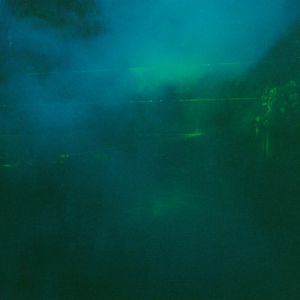Back catalogue: All genres
Juno's full catalogue of All genres
アルバム
Review: Richard Fearless, London-based DJ and producer, returns with a daring reinvention of his electronic vision, delivering an unpolished, analogue-driven techno masterpiece. Stripping away any semblance of commercial sheen, he dives headfirst into a world of disintegration and overload, where every track feels like it's teetering on the edge of collapse. Drawing on his deep affinity for the rough textures of underground techno, the work channels influences ranging from the industrial growl of Ramleh to the acidic pulse of TM404, with moments that recall the claustrophobic minimalism of Mika Vainio and the haunting drones of Loop. Fearless is unafraid of pushing boundaries, his machinesifed by years of use and a tangled web of circuitryiemitting strange, almost sentient sounds, as if alive in their own right. What emerges is an album that doesn't simply reflect the artist's influences, but speaks with a distinct, personal voice. Tracks like 'While My Machines Gently Weep' and 'Death Mask' bear the hallamrks of live takes and dub-inspired mixing, creating a haunting, almost otherworldly quality, the machine noise blending with echoes of the past. Fearless has long been obsessed with dub and here, he allows its principles to guide him, distilling decades of musical history into something that feels deeply present. A vivid portrait of an artist grappling with his own sonic ghosts and the fractured landscape of modern dance music, it's quite the spectacular.
… Read more in stock $33.05
Review: Portraits GRM offer a split release between Beatrice Dillon and Hideki Umezawa, riffing on 'basho' and Baschet respectively. Dillon's 'Basho' is shaped on the mortar of a Japanese philosophical concept: conceived by Japanese philosopher Kitaro Nishida, basho describes a post-physical plane in which experiences and thoughts interconnect, dissolving subject-object distinctions. Dillon and Umezawa's music both resist fixity, reactivating the listener's attention by way electronic sounds stripped of origin. Umezawa's 'Still Forms', however, contrasts Dillon's firm-footed techno curtails with an entirely beatless piece, exploring the sonic potential of Baschet sound structures: experimental instruments developed in the 1950s by Bernard and Francois Baschet. Electroacoustic cognitions branch out like newly grown synapses on this fresh 12".
… Read more! low stock $23.52

 USD
USD








